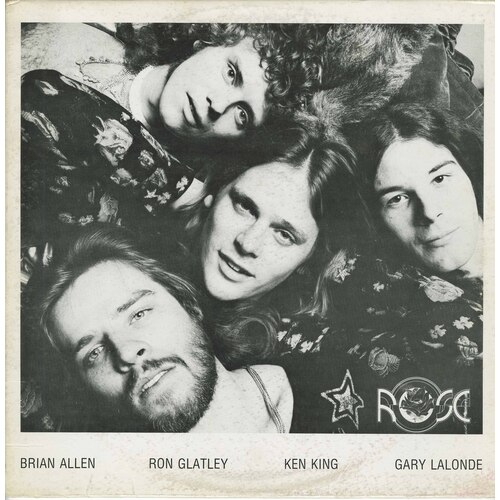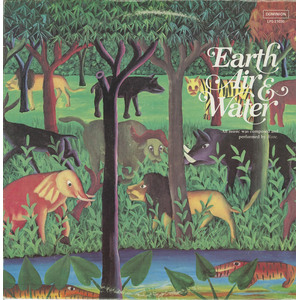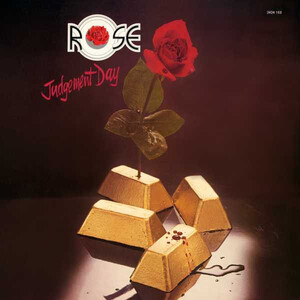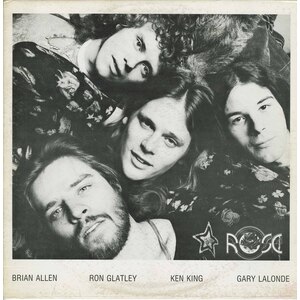Rose
Websites:
No
Origin:
Brentwood, Ontario, 🇨🇦
Biography:
Rose: The Lost Link Between Ontario Club Rock and Canadian Radio Royalty
Rose emerged in the early 1970s from Brentwood, Ontario, formed by teenage friends Brian Allen (guitar, vocals) and Ron Glatley (keyboards, vocals), who had played together in various regional bands around Barrie. Alongside bassist Gary Lalonde and drummer Ken King, they built a foundation of tight musicianship and road-tested chemistry. Initially grinding it out as a club cover band on Ontario’s southern circuit, Rose began demoing original material at Toronto’s Eastern Sound Studios, carving out a distinct identity shaped by British blues-rock, Canadian folk sensibilities, and burgeoning arena ambitions.
A pivotal moment came when the band connected with rock’n’roll legend Ronnie Hawkins and his manager Milt Brodie during a Toronto performance. Brodie, sensing potential, took the band under his wing and secured them a deal with GAS Records. Their debut album, Hooked on a Rose (1973), was produced by John Stewart (noted for work with Deep Purple’s Jon Lord). Though modest in scope and uneven in mix quality, the record blends earthy folk ballads (“Train to You”) and soulful harmony-laden soft rock (“All I Really Need”) with shades of glam boogie (“Long Lonesome Road”) and psych-blues rockers (“Wonder Wings,” “Hex”). The album's patchwork production, likely a result of limited studio time and varied recording setups, only enhances its outsider charm. Despite a brief U.S. distribution deal via Kama Sutra Records, GAS Records folded soon after the LP’s release. The band regained the rights and sold the remaining pressings independently—making Hooked on a Rose a cult collectible.
By the mid-1970s, Lalonde returned to the lineup and American drummer James Fox (ex-James Gang) replaced King. The revamped band once again took to Eastern Sound and other Toronto-area studios, refining their songwriting and sound. In 1976, Rose landed a deal with Polydor Records and entered Phase One Studios in Scarborough with producer Fraser Kaufman. The resulting sophomore effort, A Taste of Neptune (1977), marked a sonic shift toward polished, keyboard-laced arena rock. Songs like “Aquarian” and “Johnny Law” captured elements of melodic hard rock akin to Bad Company, while “Marie (Where Have You Gone)” retained their earlier ballad strengths. A cross-country tour followed, bolstered by moderate sales and growing label expectations.
The band quickly returned to the studio to produce Judgement Day (1977), their third LP and second for Polydor. Though containing some promising moments—such as the theatrical “Recession, Depression” and the rock opera-tinged “On Judgment Day”—the album largely consisted of leftover material from Neptune sessions, along with seasonal filler like “Magic of the Holidays.” Despite a promotional push and the inclusion of a duet with future Toronto frontwoman Holly Woods (then Annie Woods) on “Johnny Law,” the album underperformed, leading to their dismissal from the label.
A final self-titled LP, Rose, arrived in 1978—an independently issued swan song that showcased the band’s full transformation into radio-friendly melodic rock. While the harder edge of earlier records was softened, the album featured slick production, glossy harmonies, and more concise songwriting, placing them stylistically alongside acts like April Wine and early Saga. “Bangin’ My Head” and “Don’t Surrender” leaned into the era’s heavier rock tropes, while “Aquarian” and “Marie” provided reflective counterpoints. It was an ambitious yet ultimately futile attempt to reboot a band on the verge of fragmentation.
By 1979, Rose was no more—but their legacy endured in the next act. Brian Allen, Jim Fox, Sheron Alton (Allen’s girlfriend at the time), and Holly Woods formed the chart-topping band Toronto, which dominated Canadian radio through the early 1980s with hits like “Your Daddy Don’t Know.” Gary Lalonde later joined Honeymoon Suite, contributing to their most successful period, while Ron Glatley moved into studio production work. Allen would go on to become head of A&R at Attic Records and produce major Canadian acts like Lee Aaron, Haywire, and The Nylons.
While Rose never broke through to major success, their catalog—particularly Hooked on a Rose—remains a fascinating snapshot of a transitional time in Canadian rock, bridging the DIY ethos of the early '70s with the professional polish of '80s mainstream radio. Their evolution captures the tension between artistic authenticity and commercial ambition—and the winding road many Canadian rockers navigated en route to stardom.
-Robert Williston







